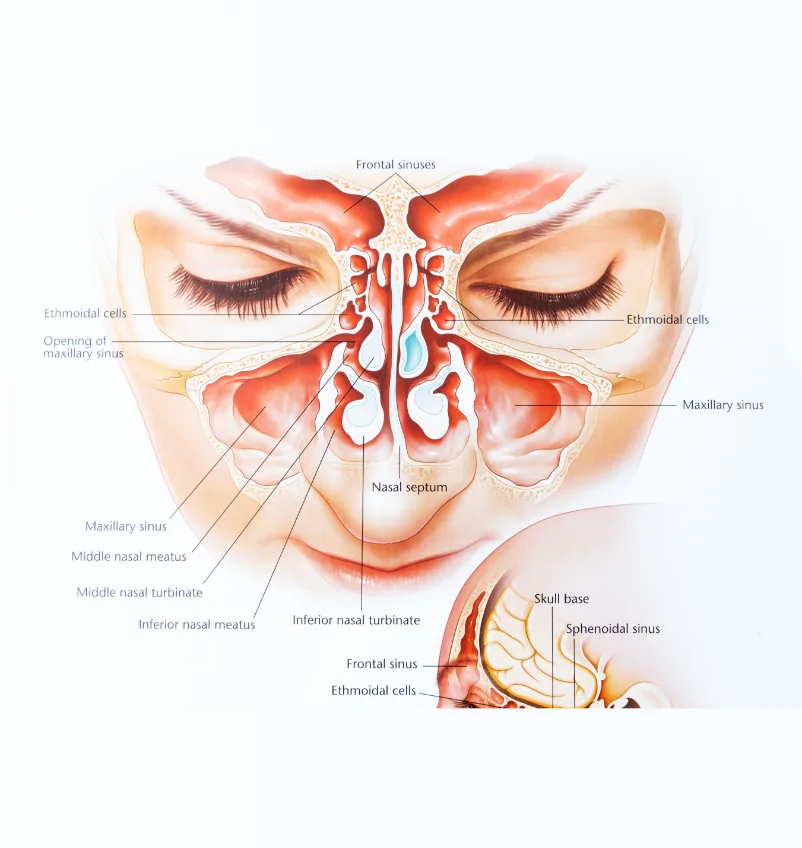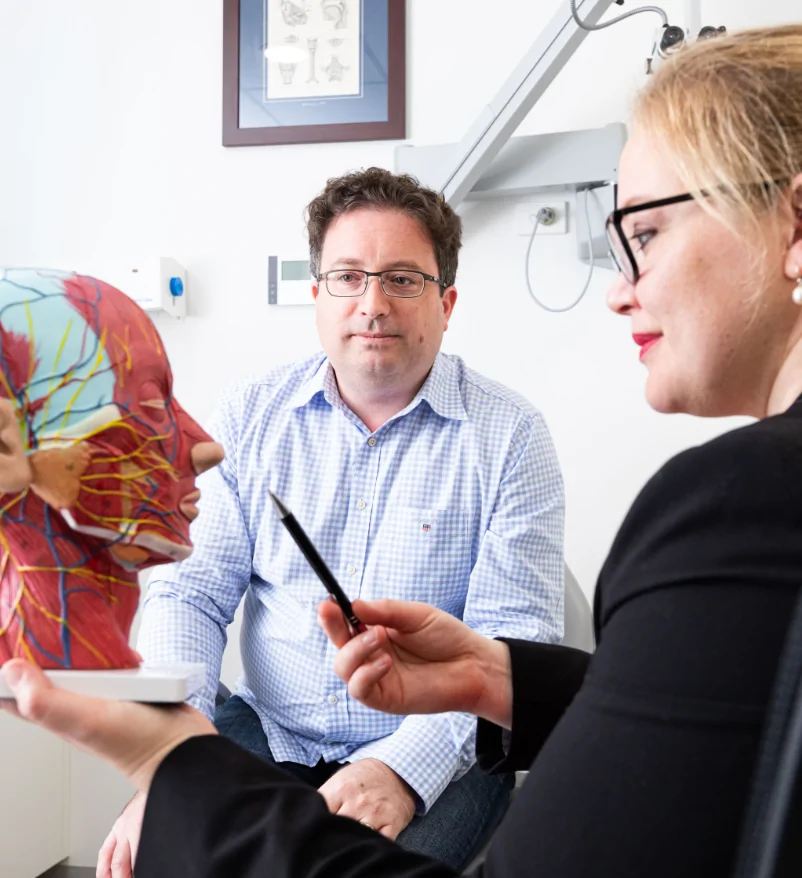
Sinus Disease
Sinus complaints are commonly managed by GPs. Ongoing sinus issues require the attention of an ENT specialist.
What are my sinuses?
Your sinuses are hollow spaces in the bones surrounding your nose.
Your sinuses are lined with a soft pink tissue called a mucous membrane, which is covered with a thin layer of mucus. Mucus helps to moisten and clean the air that we breathe in. Germs and other particles are captured by the mucus, and swept away by tiny hair cells called cilia.
Our sinuses help to lighten the bones of our skull and improve the sound of our voices.
There are 4 main pairs of sinuses:
- Maxillary sinuses
These are the largest sinuses, and are found just above your jaw.
- Frontal sinuses
Your frontal sinuses are located just above your eyes.
- Ethmoid sinuses
These are found between your eyes.
- Sphenoid sinuses
These are located behind your nose deep in the head.
Most of the sinuses drain into the nose through a small opening in the bone, called the meati.
What is acute sinusitis, and how is it treated?
Acute sinusitis is short-term sinus inflammation, which is usually caused by an infection. Symptoms include sinus pain and congestion, discoloured mucus and fever. Acute sinusitis is most often caused by a self-limiting viral infection. If a bacterial infection is present, antibiotic treatment is required. In rare cases, an untreated bacterial sinus infection could cause serious complications.
What causes chronic sinusitis?
Chronic sinusitis is sinus inflammation that lasts for 3 months or more. In some cases, acute sinusitis lingers and becomes chronic. This is more likely if there is an underlying sinus problem.
With chronic sinusitis, there may be poor sinus drainage due to a blockage of the sinus drainage pathways into the nasal cavity. This leads to a build-up of mucus in the affected sinuses, which in turn increases the risk of recurrent infections. Infections can damage the lining of the sinuses, which perpetuates this cycle. Underlying allergies may contribute to this process.
Typical symptoms of chronic sinusitis are nasal congestion, a decreased sense of smell, sinus discomfort and discoloured nasal discharge.
How is chronic sinusitis treated?
Treatment for chronic sinusitis is based on the cause and severity of your symptoms. Saline or steroid sinus rinses may be prescribed and often a course of oral steroids is required. Allergic rhinitis (“hay fever”) may be treated with allergen avoidance, antihistamines, nasal steroids or immunotherapy. Bacterial infection requires antibiotic treatment. If there is an inadequate response to medical treatment, surgery may be necessary.

What does sinus surgery involve?
Functional Endoscopic Sinus Surgery (FESS) is a modern, minimally invasive surgical technique that is done via the nostrils, using a small, rigid camera with magnifying lenses. During FESS, the normally small sinus openings may be widened, to improve sinus drainage. FESS can also be used to remove nasal polyps or tumours.
FESS may be combined with surgery that improves airflow in the nose, such as a septoplasty and/ or turbinoplasty.
Sinus issues can significantly affect a person’s quality of life. If you are suffering from ongoing sinus problems, a referral to an ENT specialist is an important step towards regaining optimal health. An appointment can be made with Dr Julia Crawford, at her rooms in Darlinghurst or Kogarah, call (02) 8319 9434.

